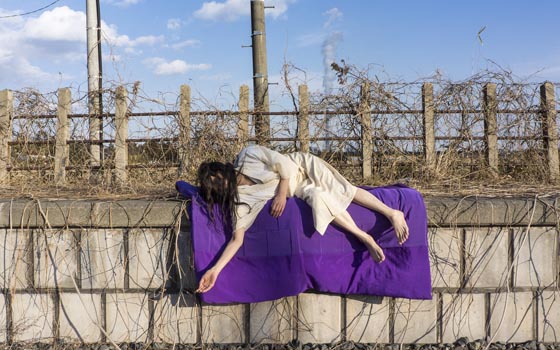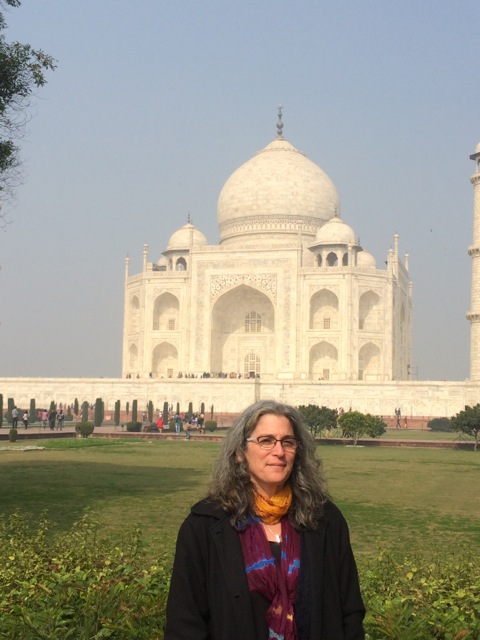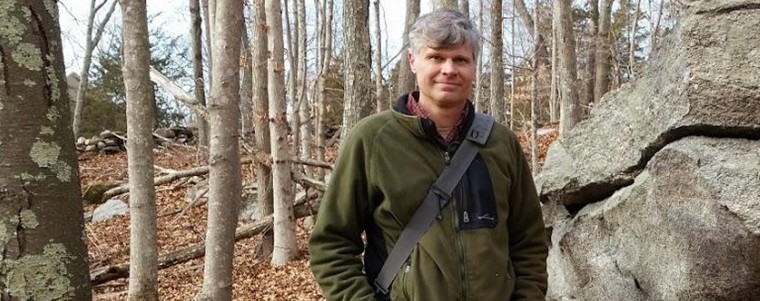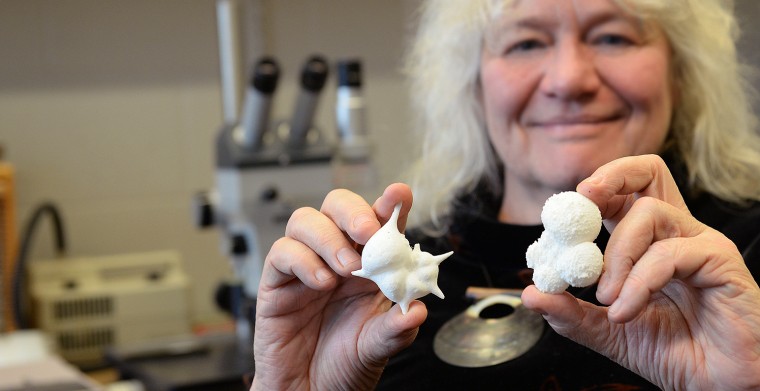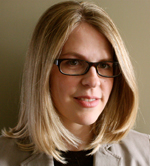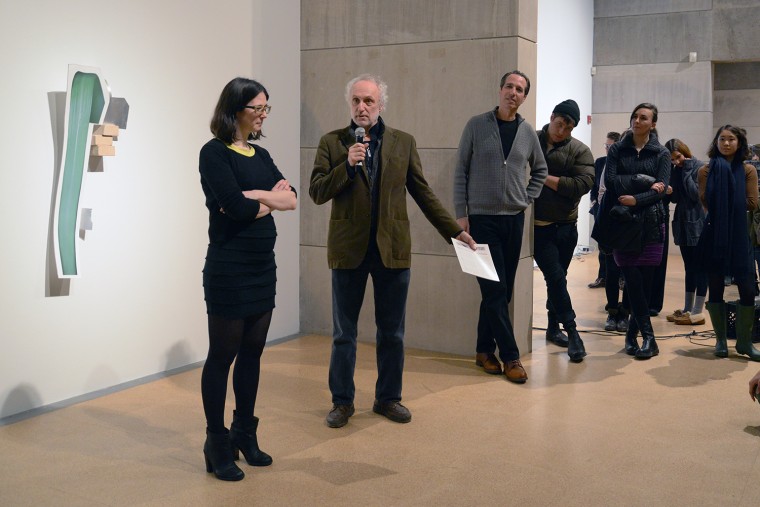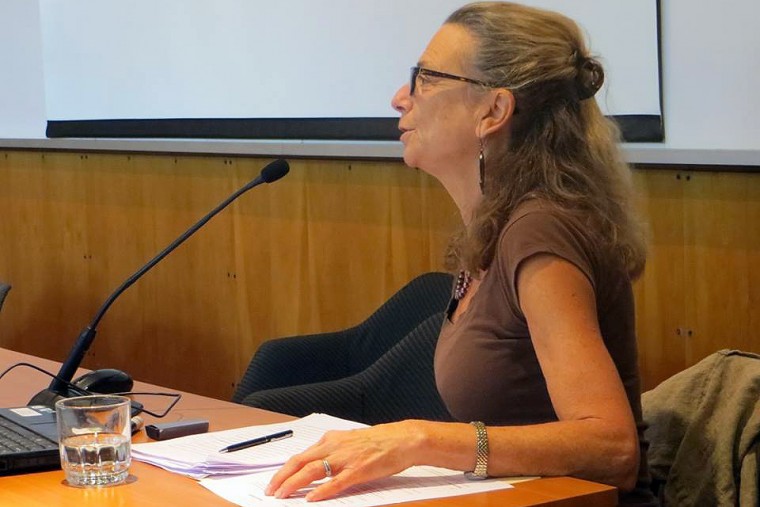A Body in Fukushima, a series of color photographs and video presented in a groundbreaking exhibition across three Wesleyan galleries, is on display through April. The series is an exploration into the area around the Fukushima Daiichi Nuclear Power Plant, which destabilized and melted down after a magnitude 9.0 earthquake and tsunami in March 2011. The power plant released radioactive materials into the surrounding environment. In 2014, dancer-choreographer Eiko Otake and photographer/historian William Johnston followed abandoned train tracks through desolate stations into eerily vacant towns and fields in Fukushima, Japan. Otake is a visiting instructor in dance and Johnston is professor of history, professor of…
Lori Gruen, chair and professor of philosophy, was a distinguished guest speaker at the third Minding Animals Conference (MAC) in New Delhi, India on Dec. 7. Gruen also is professor of environmental studies, professor of feminist, gender and sexuality studies. During the conference, Gruen discussed "Entangled Empathy," which is the topic of her most recent book. Gruen notes "that we are already entangled in complex and life-altering relationships with other animals and argues for a version of empathy as a way of rethinking and practicing animal ethics." She also sat on a panel that discussed the state of the field of animal studies and led…
The Hartford Courant and WNPR both featured stories on Wesleyan's "observatory nights," which began this month. Every Wednesday night at 8 p.m. during the Spring semester, the Van Vleck Observatory will open its doors to the public, rain or shine, for viewing of the sky through telescopes and presentations on the latest space-related research. According to the Courant, Research Assistant Professor of Astronomy Roy Kilgard said the department is seeking to supplement its outreach to groups already interested and involved in science with new sessions for people who may not have a high level of knowledge about space and astronomy. "We're really trying…
Phillip Resor, associate professor of earth and environmental sciences, was recently interviewed on WNPR about an amazing part of Connecticut's geological history. According to the story, several hundred million years ago, Connecticut was in the middle of a massive continental collision, which formed the super continent Pangea and pushed up huge mountains. Deep beneath the earth, a borderland beneath the two continents formed. Today, geologists call it the Lake Char fault system; it runs along the I-395 corridor in southeastern Connecticut. Resor took WNPR reporter Patrick Skahill to East Haddam by Gillette Castle to walk along the banks of the Connecticut River, and showed him fine black…
Giulio Gallarotti, professor of government, professor of environmental studies, tutor in the College of Social Studies, was a guest on the McAlvany Weekly Commentary to discuss his book, The Power Curse: Influence and Illusion in World Politics. Gallarotti discusses how power creates the seeds of its own destruction. The applications are explored both in the context of geo-politics and international finance. Listen to the interview here. Gallarotti's book can be found here.
#THISISWHY Research Professor Ellen Thomas grasps a glass-enclosed sample of hundreds of microfossils, each a white fleck of limestone barely visible to the human eye. "The first time students look at these they say, 'they all look the same to me,' but in reality, they are all have very different shapes," Thomas says. "Even under a microscope, it can be difficult for a new eye to see the differences, but each species has its own shape; some have a much more open, light structure because they lived floating in the oceans close to the surface. Others have denser shells and lived on the bottom of the ocean,…
Professor of Theater Ron Jenkins is part of a growing movement urging Indonesian President Joko "Jokowi" Widodo to spare the lives of two Australian drug smugglers currently on death row in Indonesia. Their executions are scheduled for later this month. Andrew Chan and Myuran Sukumaran were part of a theater workshop Jenkins conducted at the Kerobokan Penitentiary in 2011. That workshop focused on adapting Dante's "Divine Comedy" for the stage. Jenkins is now teaching the same class at a prison in Connecticut through the Yale Divinity School. In connection with that course, on Feb. 7, Jenkins moderated a panel at the Yale Divinity School…
As controversy over the measles vaccine continues to grow, and prominent politicians weigh in with their views, Assistant Professor of Government Erika Franklin Fowler writes in The Washington Post's "Monkey Cage" blog about the dangerous consequences that politicization of vaccine issues in the news media can have on public support for vaccines in general. In an article co-authored with with Sarah Gollust '01, now an assistant professor at the University of Minnesota's School of Public Health, Fowler considers the the 2009 dust-up over mammography screening recommendations, and the 2006-07 debate over whether to require girls to get the HPV vaccine. Though neither started…
(more…)
Assistant Professor of Government Erika Franklin Fowler recently had two new articles on advertising in the 2014 elections published. Co-written with her Wesleyan Media Project co-director Travis Ridout of Washington State University, "Political Advertising in 2014: The Year of the Outside Group" was published in The Forum: A Journal of Applied Research in Contemporary Politics in December 2014. The paper notes a plateau in political advertising volumes and levels of negativity this election cycle, and an increasingly prominent role played by outside groups, especially in competitive races for the U.S. Senate. It also tracks the most competitive races, looks at issues featured in ads,…
President Roth recently spoke to The Washington Post about current level of anxiety over the job-readiness of college grads, and what colleges' roles and responsibilities really are to ensure their students are prepared for the workforce. “The erosion of the middle class,” he said, “has put a lot more pressure on parents and students to make it big in the world or the consequences are dire.” Roth told the Post that he believes universities can do more to prepare students for the job market "without abandoning their traditional role to provide a broad education." He said Wesleyan is investing more in its career services.…
Stray dogs are everywhere in Santiago, Chile. They lie on sidewalks, wander the parks, and even cross busy streets unaided. No one seems to mind; they’re just part of the culture. For Kari Weil, University Professor of Letters, they also were a striking reminder of the purpose of her recent trip to Santiago. At the invitation of the U.S. Embassy there, she visited the Pontificia Catholic University of Chile Jan. 6-9 to discuss current trends in American animal studies. Although academics have studied animals from various perspectives for a long time, animal studies as a cross-disciplinary field has come into its own…


